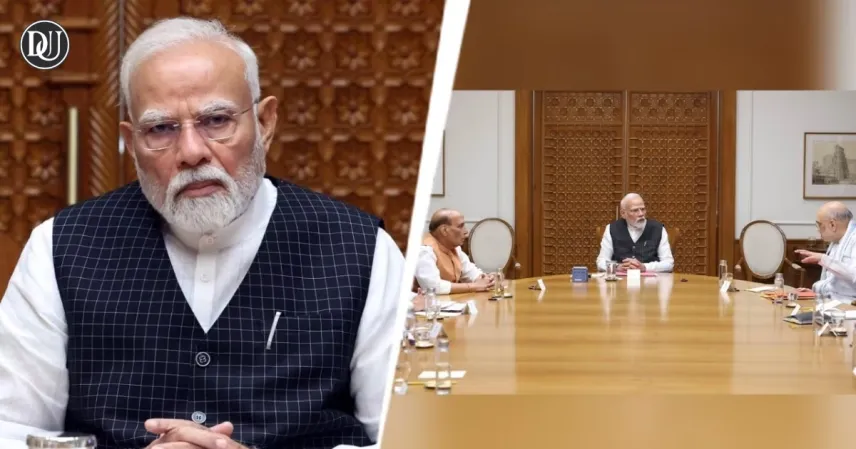India woke up to yet another heart-wrenching tragedy. A brutal terror attack in Pahalgam, Kashmir claimed the lives of brave soldiers—sons, brothers, husbands who wore the uniform with pride. The pain runs deep. Every Indian feels the sorrow of the families left behind. But this time, it’s not just grief—it's also fury.
🎯 A Diplomatic Message Loud and Clear
In a swift and stern move, the Indian government summoned Pakistan’s senior-most diplomat in New Delhi, Saad Ahmad Warraich. What followed was not just diplomatic protocol—it was a clear message: India will no longer tolerate passive complicity in terror.
The Government of India officially handed him a note declaring that a senior Pakistani military diplomat has been declared "persona non grata"—a term that may sound complex but is deeply symbolic. It means: You are no longer welcome on our soil. Leave. No grey area. No more patience.
Also read - India Turns Off the Tap—How Will Pakistan React?
🛑 What Does “Persona Non Grata” Really Mean?
In simple terms, it's like cutting all ties with someone who has broken your trust repeatedly. It’s the highest form of diplomatic protest. When a country says “persona non grata” to a foreign diplomat, it's not just paperwork—it’s a slap on the wrist for nations that turn a blind eye to violence.
Pakistan’s military and diplomatic channels have long been accused of turning a deaf ear—or worse, providing indirect shelter—to terror operatives. By asking the Pakistani military attaché to leave, India isn’t just protesting—it’s protecting its own.
🇮🇳 More Than Diplomacy—It’s About Dignity
This decision reflects not just the resolve of our leaders, but the pulse of a nation. A nation that has been patient, peace-loving, and diplomatic for decades. But every limit has a breaking point. This is not about India vs Pakistan—it’s about human lives vs terror networks.
Imagine losing someone to a senseless act of violence, only to see the perpetrators go unpunished, supported by silence from those who should know better. That’s the rage millions of Indians feel today.
✊ A Nation United in Resolve
Pakistani Diplomats in India declared 'Persona Non Grata' - But what does that even mean?
— RJ - Rishabh Jain (@rishsamjain) April 24, 2025
📜 Under the Vienna Convention on Diplomatic Relations (1961), a host country can declare any foreign diplomat persona non grata — Latin for “an unwelcome person” without giving a reason.… pic.twitter.com/yCDUc7jsX5
The move has sparked a wave of national pride. Across newsrooms, tea stalls, and dinner tables, one thing is clear—India is standing tall. No more soft steps, no more diplomatic silence.
We are a country of peace, but we are also a country of pride.










